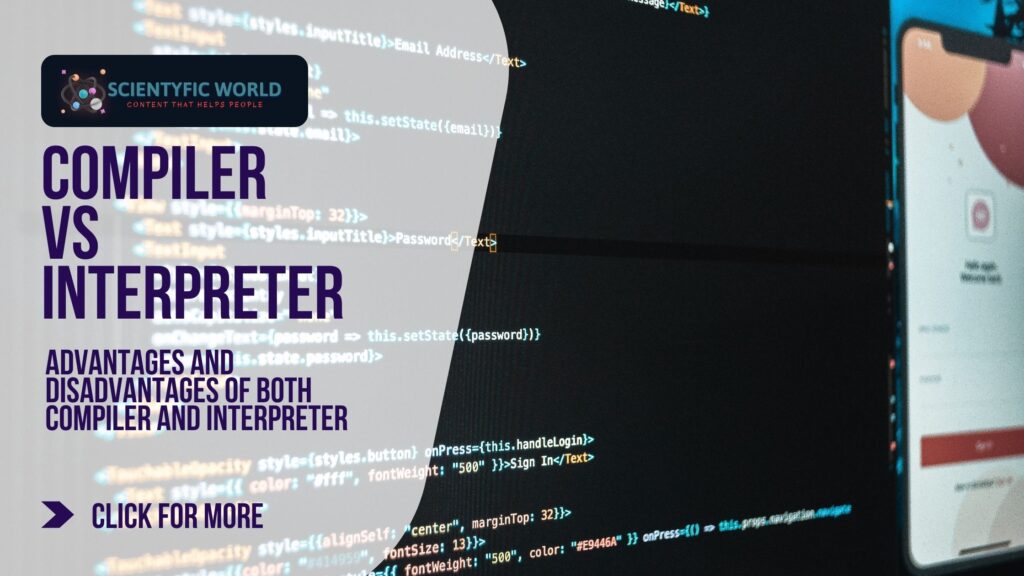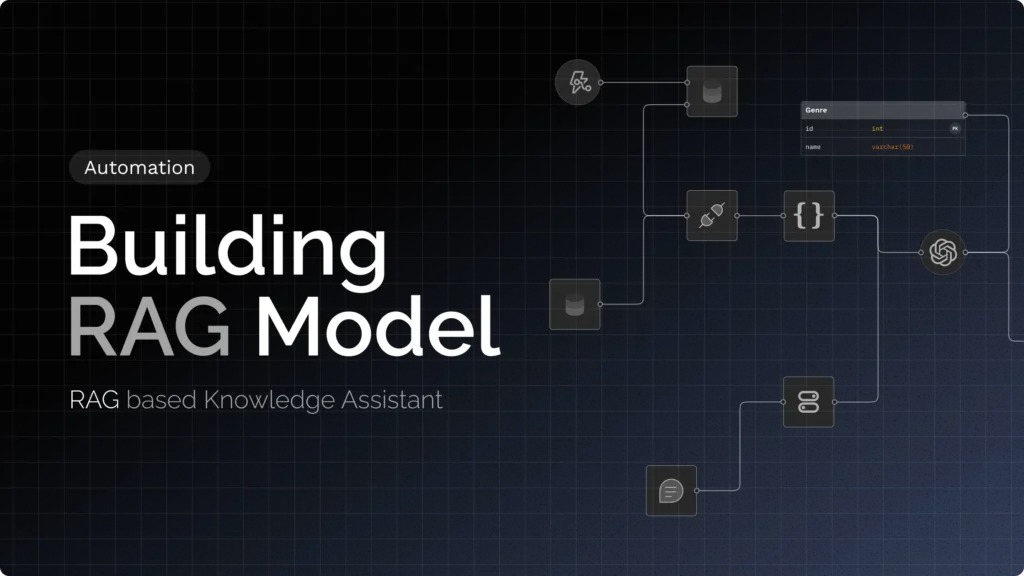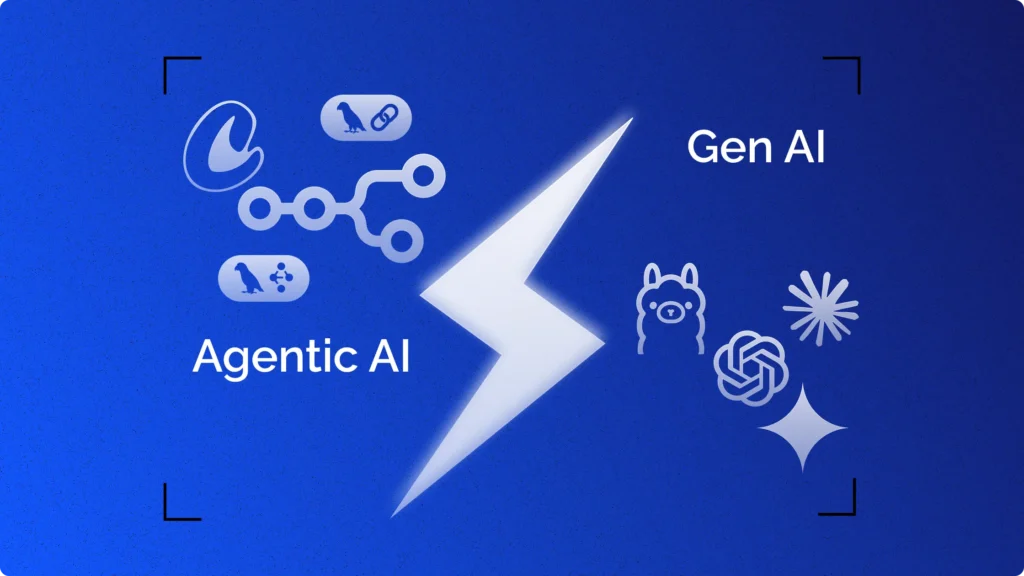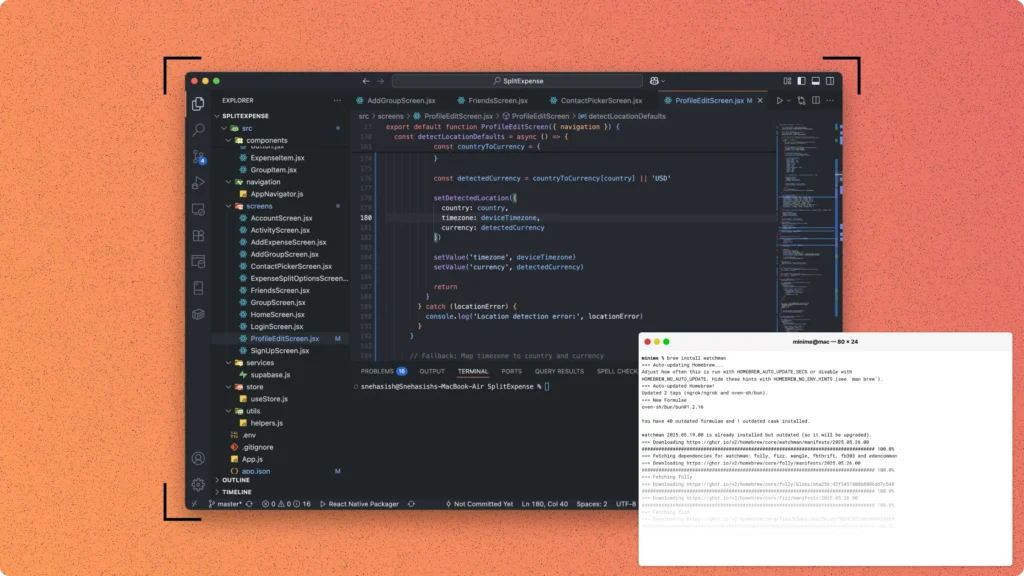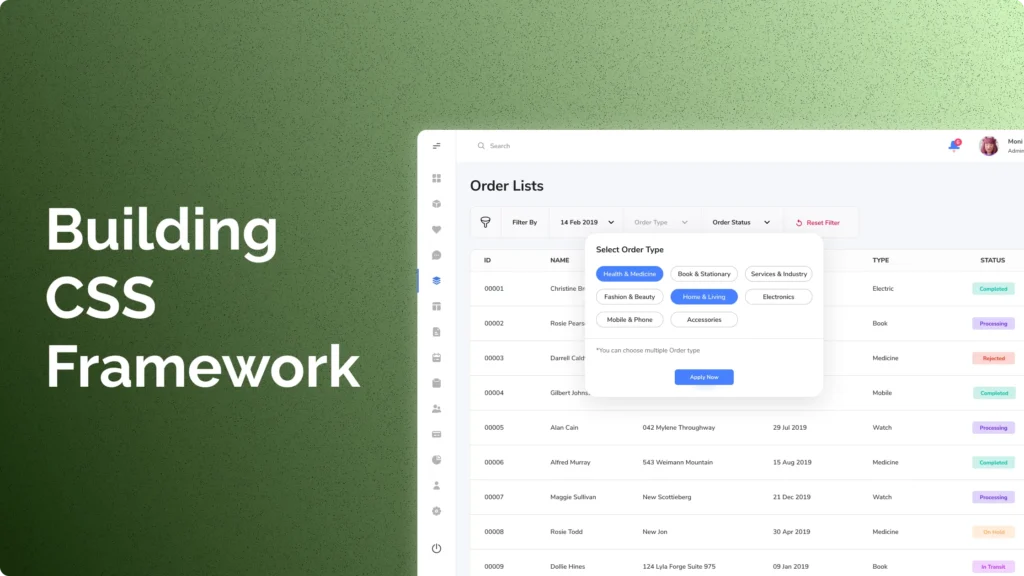When it comes to programming language implementation, there are two main approaches: compiling and interpreting. In this blog post, we will take a closer look at the two concepts and compare their advantages and disadvantages, which means we’re going to do “Compiler vs Interpreter”.
But before differentiating between them, let’s first know about them.
Compiler:

If we break down the name compiler then it sounds like compiling something, which means collecting something or constructing something.
In programming, the meaning of compiler is pretty much the same. A compiler collects some information from the user and then constructs the relevant thing from it.
A compiler is a computer program that transforms source code written in a programming language into another form, typically machine code that can be executed by a computer. The machine code that a compiler produces is usually specific to a certain CPU or instruction set architecture.
So, here as I mentioned that a compiler takes a high-level language as input and translates it into machine language, let’s see how this works.
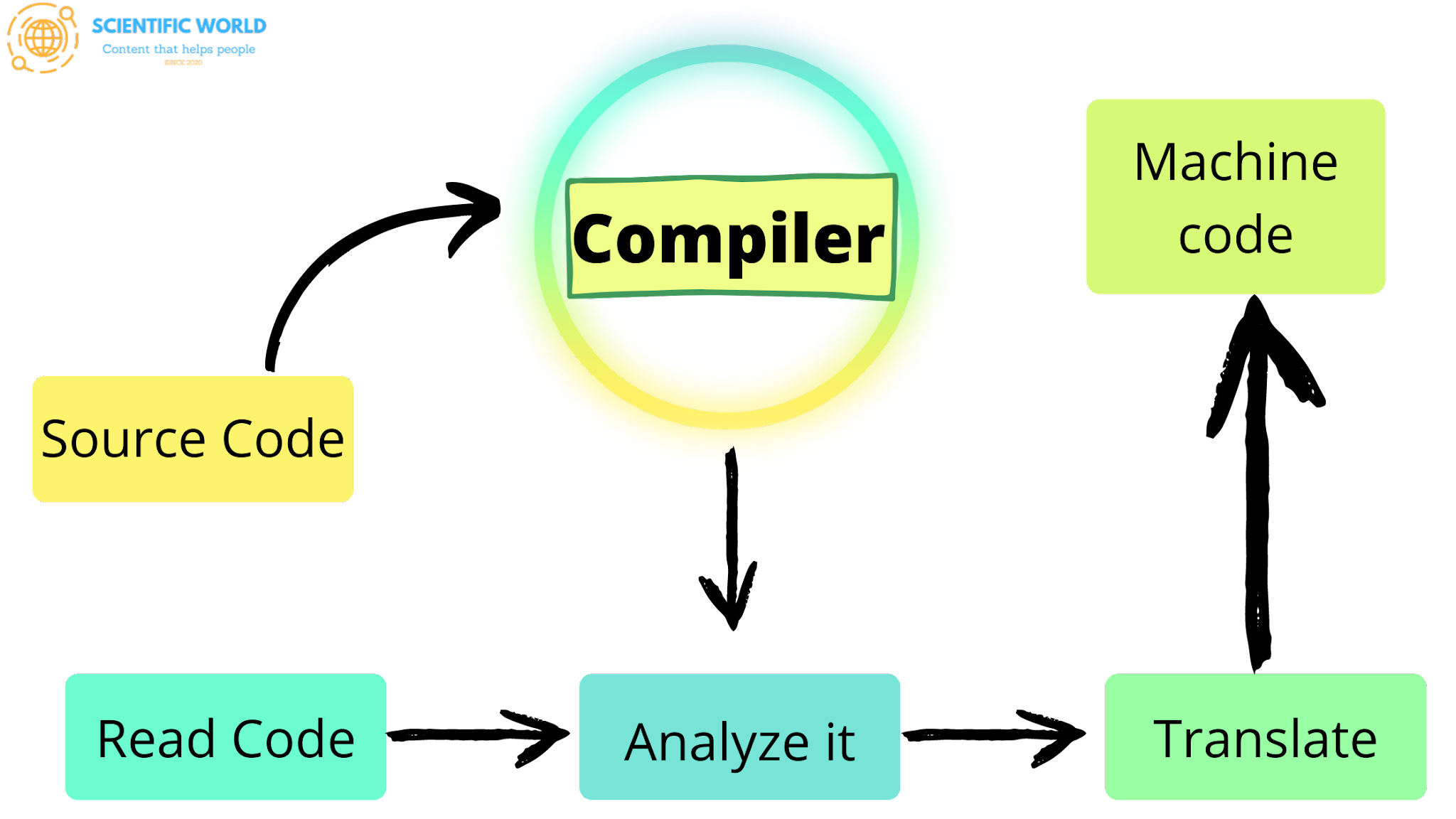
Advantages of Compiler:
If you’re a programmer, you know that optimization is important. It can make your code run faster, and in some cases, use less memory. But what exactly is compiler optimization?
At its simplest, compiler optimization is the process of making your code run faster, or use less memory, by making changes to the way the code is compiled.
There are many different types of compiler optimizations, but some of the most common are:
- Instruction Scheduling
- Register Allocation
- Cache Coherency
- Dead Code Elimination
- Loop Unrolling
- Inlining
- Function Splitting
- Interprocedural Optimization
- Whole Program Optimization
- Link-Time Optimization
- Profile-Guided Optimization
- Runtime Optimization
- Just-In-Time Compilation
- Parallelization
- Auto-vectorization
Instruction scheduling is a type of compiler optimization that rearranges the order of instructions to improve performance. This can be done by taking into account factors such as branch prediction, data dependencies, and the latency of each instruction.
Register allocation is another type of optimization that tries to improve performance by using registers more efficiently. This is done by allocating each value to the register that will be used most often, and by avoiding spill code (code that saves values from registers to memory).
Cache coherency is an optimization that tries to keep the data in the cache (a fast memory that is used to store frequently accessed data) up-to-date. This is important because if the data in the cache is not up-to-date, the CPU will have to wait for the data to be fetched from the main memory, which is much slower.
Dead code elimination is a type of compiler optimization that removes code that is never executed. This can be done by using data flow analysis to identify code that is never reached, and then removing that code from the program.
Loop unrolling is a type of compiler optimization that improves performance by unrolling loops. This means that the code inside the loop is duplicated a certain number of times so that the loop can be executed without the overhead of checking the condition each time.
Disadvantages of Compiler:
A compiler is a program that translates code from a high-level language to a lower-level language. In most cases, the lower-level code is assembly language or machine code. Although compilers can be helpful, there are a few disadvantages associated with using them:
1)Compilers can be complex and difficult to use.
2)Compilers can produce code that is difficult to read and understand.
3)Compilers can be slow.
4)Compilers can be inaccurate.
5)Compilers can be resource-intensive.
6)Compilers can be platform dependent.
7)Compilers can generate errors that are difficult to track down and fix.
Now coming to the Interpreter.
Interpreter:
Interpreter means simply translator, which means it mainly translates a language to another one.
In computer programming, it does the exact same thing.
An interpreter is a computer program that executes a set of instructions, typically in the form of source code written in a programming language. Interpreters typically read the source code one line at a time and execute it immediately.
Some interpreters can also perform a just-in-time (JIT) compilation, where the source code is compiled into machine code just before it is executed. JIT compilation can provide better performance than interpreted execution, but it typically requires more memory.
Advantages of Interpreter:
Interpreters are generally easier to use than compilers.
If you are new to programming, then you will find it easier to use an interpreter. This is because you don’t have to compile your code before you can run it. You can simply type in your code and run it. This is not possible with a compiler. You have to compile your code before you can run it.
Interpreters can provide you with immediate feedback.
Another advantage of using an interpreter is that it can provide you with immediate feedback. If you have written a line of code and want to know if it is working or not, you can simply run it through the interpreter. On the other hand, if you want to do the same with a compiler, you have to compile the entire program and then run it. This can be time-consuming.
Interpreters can be used for debugging purposes.
If you want to debug a program, you can use an interpreter to do it. This is because you can execute each line of code one at a time and see if there are any errors. This is not possible with a compiler. You have to compile the entire program and then run it to debug it.
Interpreters can be used to execute code written in a high-level language.
If you want to execute code written in a high-level language, you can use an interpreter. This is not possible with a compiler. A compiler can only compile code written in a high-level language.
Disadvantages of Interpreter:
Interpreters can be costly, and if you’re working with a professional, you’re likely to be paid by the hour. This can add up quickly, especially if you’re working with an interpreter for an extended period of time.
There can also be a communication barrier between the interpreter and the person they’re communicating with. This is because interpreters have to relay information accurately and without bias.
Interpreters can also get tired, especially if they’re working for long periods of time. This can lead to them making mistakes or not being able to communicate as effectively.
If you’re working with an interpreter, it’s important to be aware of these potential disadvantages so that you can plan accordingly.
Now, it’s time for the showdown.
Compiler Vs Interpreter:
| Topic | Compiler | Interpreter |
|---|---|---|
| Working | A compiler translates high-level code to machine language directly | An interpreter translates high-level code to intermediate form and then converts that code into machine language. |
| Input | It takes the whole source code as input and covers it all in the machine-level language. | It takes 1 single program as an input. |
| Analyzing time | As the compiler takes the whole source code as input so it takes a large amount of time to read the code. | As the Interpreter takes only 1 single code as input, so it takes less time to analyze the code. |
| Overall performance | The overall performance of the compiler is faster than the interpreter because the translation has been done quickly. | Here the interpreter is slower than the Compiler. |
| Advantage | The compiler translates the code directly to the machine language, so its execution time is less. | Using an Interpreter is too easy for even beginners. |
| Run-time | The runtime of a compiled code is faster. | Interpreted codes run slower. |
| Error Detection | In the compiler, detected errors get shown after reading the complete code. | In the interpreter, detected errors get shown after reading each code. |
| Memory required: | The compiler needs more memory than the Interpreter. | An interpreter needs less memory than the compiler. |
| Debugging | Compilers are slow in debugging. | Interpreters are fast in debugging. |
| Scanning | Compilers scan the complete code at once. | Interpreters scan each line of code. |
| Use | A Compiler is best suited for the Production domain. | An Interpreter is best suited for the programming and development domain. |
| *Dynamic Typing | As Compiler can’t predict what is going to be happening at turn time, so it is quite difficult to implement. | Interpreted languages support dynamic typing. |
| Eg. | C, C#, C++ etc use compiler | Python, Ruby, JAVA, PHP, MATLAB etc. use an interpreter |
Now that you know the advantages of using an interpreter over a compiler, you can decide which one is better for you.
Dynamic Typing & Static Typing:
This is nothing but a property of a language where the type checks are performed at the runtime, while statically-typed languages performed type checking at the time of compiling.
Usually interpreted languages to use dynamic typing and compiled languages like C, C++ etc. use static typing.
To read the full comparison, you can visit this article- “Dynamic Typing vs Static typing“.
